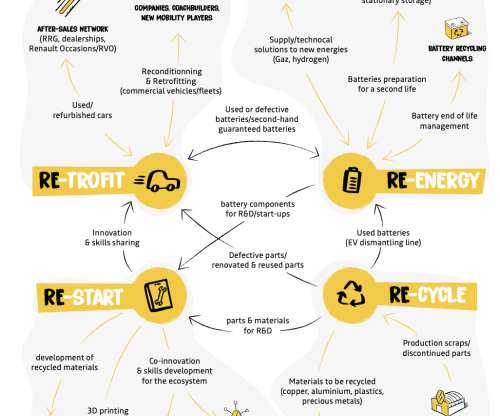Japanese start-up seeks to commercialize dual-carbon battery technology; anion intercalation
Green Car Congress
MAY 14, 2014
Start-up Power Japan Plus announced plans to commercialize a dual-carbon battery technology, which it calls the Ryden dual carbon battery. Dual-carbon (also called dual-graphite) batteries were first introduced by McCullough and his colleagues at Dow Chemical in a 1989 patent, and were subsequently studied by Carlin et al.





































Let's personalize your content